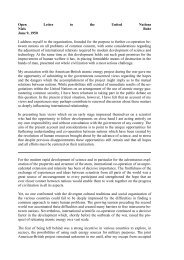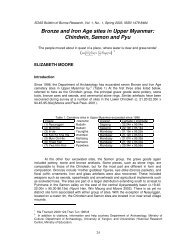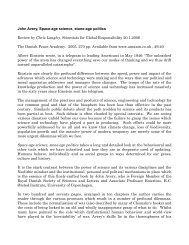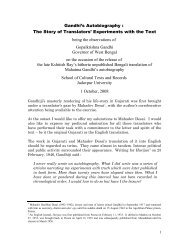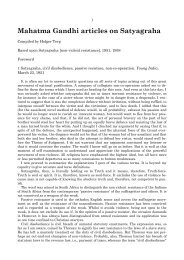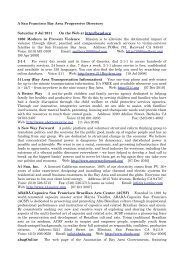THE SLAVERY OF OUR TIMES PREFACE / INTRODUCTION
THE SLAVERY OF OUR TIMES PREFACE / INTRODUCTION
THE SLAVERY OF OUR TIMES PREFACE / INTRODUCTION
You also want an ePaper? Increase the reach of your titles
YUMPU automatically turns print PDFs into web optimized ePapers that Google loves.
attempts are being made to put this in practice both in New Zealand and in one of the<br />
American States (the limitation of the landlord's rights in Ireland is a move in the<br />
same direction) ; a third set-the Socialists-propose to communalise the means of<br />
production, to tax incomes and inheritances, and to limit the rights of capitalistemployers.<br />
It would, therefore, seem as if the legislative enactments which cause<br />
slavery were being repealed, and that we may, therefore, expect slavery to be<br />
abolished in this way. But we need only look more closely at the conditions under<br />
which the abolition of those legislative enactments is accomplished or proposed to be<br />
convinced that not only the practical, but even the theoretical projects for the<br />
improvement of the workers' position are merely the substitution of one legislation<br />
producing slavery for another establishing a newer form of slavery. Thus, for instance,<br />
those who abolish taxes and duties on the poor, first abolishing direct dues and then<br />
transferring the burden of taxation from the poor to the rich, necessarily have to<br />
retain, and do retain, the laws making private property of landed property, means of<br />
production, and other articles, on to which the whole burden of the taxes is shifted.<br />
The retention of the laws concerning land and property keeps the workers in slavery<br />
to the landowners and the capitalists, even though the workers are freed from taxes.<br />
Those who, like Henry George and his partisans, would abolish the laws making<br />
private property of land, propose new laws imposing an obligatory rent on the land.<br />
And this obligatory land- rent will necessarily create a new form of slavery, because a<br />
man compelled to pay rent, or the single tax, may at any failure of the crops or other<br />
misfortune have to borrow money from a man who has some to lend, and he will again<br />
lapse into slavery. Those who, like the Socialists, in theory, wish to abolish the<br />
legislation of property in land and in means of production, retain the legalization of<br />
taxes, and must, moreover, inevitably introduce laws of compulsory labor-that is, they<br />
must re-establish slavery in its primitive form.<br />
So that, this way or that way, all the practical and theoretical repeals of certain laws<br />
maintaining slavery in one form have always and do always replace it by new<br />
legislation creating slavery in another and fresh form.<br />
What happens is something like what a jailer might do who shifted a prisoner's chains<br />
from the neck to the arms, and from the arms to the legs, or took them off and<br />
substituted bolts and bars. All the improvements that have hitherto taken place in the<br />
position of the workers have been of this kind.<br />
The laws giving a master the right to compel his slaves to do compulsory work were<br />
replaced by laws allowing the masters to own all the land. The laws allowing all the<br />
land to become the private property of the masters may be replaced by taxation-laws,<br />
the control of the taxes being in the hands of the masters. The taxation-laws are<br />
replaced by others defending the right of private property in articles of use and in the<br />
means of production. The laws of right of property in land and in articles of use and<br />
means of production it is proposed to replace by the enactment of compulsory labour.<br />
So it is evident that the abolition of one form of legalization producing the slavery of<br />
our time, whether taxes, or landowning, or property in articles of use or in the means<br />
of production, will not destroy slavery, but will only repeal one of its forms, which will<br />
immediately be replaced by a new one, as was the case with the abolition of chattelslavery,<br />
of serfdom, and with the repeals of taxes. Even the repeal of all three groups<br />
of laws together will not abolish slavery, but evoke a new and as yet unknown form of





